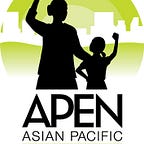In 2015, I traveled to Palestine as a representative of Climate Justice Alliance with a La Via Campesina delegation to meet the Union of Agricultural Work Committees (UAWC) in the West Bank. I didn’t speak Arabic, so instead I connected with people using my tools — my camera and a soccer ball. I passed the ball around with some boys in a market in Hebron.
We visited farmers outside of Hebron and Ramallah, sipped tea in their homes as they told us about their struggles accessing enough water to tend their land. Since 1967, Israel has had control over water resources and infrastructure in Palestine. From the bus, we could see Israeli settlements. There, with plenty of access to water, the homes and fields looked like vibrant green Oases in the desert.
I was struck by the deep connection Palestinian farmers held to their land. As indigenous people, Palestinians have stewarded and cared for their homeland for thousands of years. They practiced sustainable farming by planting olive trees and grape vines in irrigation terraces. Semi-nomadic bedouins tended to sheep and goats. But through Plan Dalet and the Nakba (‘the catastrophe’) in 1948, Zionist militias and the new Israeli army pushed 800,000 Palestinians out of their homes and lands at gunpoint to establish the state of Israel. Many Palestinian refugees were pushed into Gaza, the West Bank, and Lebanon.
Since then, Israel has used settlers to kick Palestinians out of their homes and take control over more land and resources. Today, Israel exercises total military control over the West Bank and Gaza, controlling people’s access to basic needs like water, electricity, food and medicine, and restricting people’s movement.
Walking through the neighborhoods of Ramallah, even amidst the vibrant hustle of restaurants, schools and businesses, I could feel the yoke of occupation. I saw the soldiers in the streets, the tributes to the martyrs and political prisoners and of course, the inescapable 30 foot tall separation wall — adorned with graffiti messages of resistance.
Today, Palestinians continue to fight for their land and home. We visited seedbanking facilities where the UAWC was preserving indigenous crops. We met with women starting worker cooperatives–their embroidery crafts reminded me so much of the embroidery the APEN Mien members I work with in Richmond. They are fighting to live fully and freely, to maintain their culture and connection with land, and to end a brutal military occupation.
Last week in Richmond, we held a lunch for APEN Khmu elders — refugees of the Secret War in Laos, when the U.S government pounded the tiny country with 20 million bombs. We asked what they remember from their childhoods. Every one of them said they missed their land. How they missed growing their own rice, caring for their water buffalo and chickens and coming together as a community in celebration of the harvest.
Like Palestinians, many Asian Americans find our family and community histories full of land grabs for resources, colonial wars and military occupations, and displacement from our native lands.
As a Filipino American, I feel kinship with Palestinians: we are both diasporic peoples, unsettled from our countries, living hundreds of thousands of miles away from our homelands. Every time atrocities are committed in the Philippines, the first people who join us in the streets in solidarity are our Palestinian comrades. Having lived under 75 years of occupation, they are so clear on the need to fight imperialism in all forms.
My heart grieves the loss of so many civilian Israeli and Palestinian lives. But for the Palestinians — especially the more than 2 million people of Gaza, trapped in an area of land the size of the American city of Philadelphia, without power, supplies or water as bombs rain down from the skies — this is not a war; it is an existential struggle.
I spent this week feeling devastated, listening to the news coverage in the car. On Monday morning, as I drove my toddler to daycare, the news played notices of Israeli bombings in Gaza and civilians being told to evacuate with no real possibility of escape. Homes, schools and entire neighborhoods had already been flattened. I started crying. At home, I felt helpless — like conditions are just inevitably getting worse.
Tomorrow, I plan to join the All out for Gaza protest in front of the SF Ferry Building in San Francisco at noon.
I long to be with others — in grief, rage and power–and to show my child that we are not alone.
Join me in taking action. Mobilize tomorrow in San Francisco. Call Congress and tell them to stop fueling violence by sending weapons to Israel. Learn about the history of Palestine.
Megan Zapanta is Richmond Organizing Director at Asian Pacific Environmental Network (APEN).
